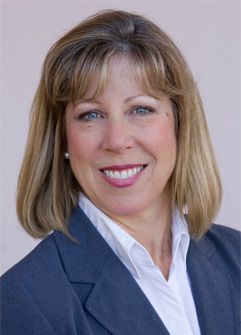- Home
- What's new on the market
- Automatic Email Alerts
- Buyer's Guide
- Seller's Guide
- Testimonials
- Local Resources
- Useful Links
-

 Bidwell Realty
Bidwell Realty
Broker Associate
Mobile: (530) 828-3846
CA-BRE #01447638 LDepweg@gmail.com 
When you bought your home, you probably used the services of a real estate agent. You found that agent through a referral from a friend or family member, or through some sort of advertising or marketing. The agent helped you in many ways and eventually you found the house of your dreams, made an offer, closed the deal, and moved in.
For whatever reason, now it is time to sell your home and you need a real estate agent again. Many home sellers, especially those selling their first home, tend to think all agents are similar to the one that helped them buy their home.
Although real estate agents can (and do) work with both buyers and sellers, most tend to concentrate more on one than the other. They specialize. When you bought your home, you probably worked with a "selling agent" – an agent that works mostly with buyers. Because of the nature of real estate advertising and marketing, the public’s main image of the real estate profession is that of the selling agent.
As a result, many homeowners expect their listing agent to do the same things that a selling agent does – find someone to buy their home. After all, they do the things you would expect if they were searching for buyers. A sign goes up in the front yard. Ads are placed in the local newspaper and real estate magazines. Your agent holds an open house on the weekend. Your house is proudly displayed on the Internet.
But this is only "surface" marketing. More important activity occurs behind the scenes. After the "for sale" sign goes up and flyers are printed, your agent’s main job is to market your home to other agents, not to homebuyers.
Other Agents
Even before the sign is up and the brochures are ready, your agent should list your property with the local MLS (Multiple Listing Service). The MLS is a database of all the homes listed by local real estate agents who are members of the service, which is practically all of the local agents.
Important information about your property is listed here, from general data such as square footage and number of rooms, to such details as whether you have central air conditioning or hard wood flooring. There should also be a photo, and a short verbal description of what makes your house "special."
Agents search the database for homes that fit the price range and needs of their clients. They pay special attention to homes that have been recently placed on the market, which is one reason you get a lot of attention when your house is first listed. Many agents will want to preview the home before they show it to their clients.
The main point about having your house listed in the MLS is that you expand your sales force by the number of local MLS members. Instead of having just one agent working for you, now you may have hundreds or more, depending on the size of your community.
The listing agent’s main job to make sure that the other MLS members know about your house. This is accomplished through listing your house in the Multiple Listing Service, broker previews and advertising targeted toward other agents, not homebuyers.
About the For Sale Sign
It seems fairly obvious that when you put your house up for sale that your agent will put a "for sale" sign in the front yard. The sign will identify the agent’s company, the agent, and have a phone number so prospective buyers can call and get information.
Signs are great at generating phone calls, even if very few actually purchase the home they call about. However, you might be one of the lucky ones. For that reason, you should determine what happens when someone calls the number on the sign. Does a live person answer the phone or does the call go to a voicemail or recorder?
You want someone to answer the phone while the caller is "hot." When buyers call the number on the sign, the call should go to a live person who can answer questions immediately. A potential buyer may be on the street outside your home, placing the call using a cell phone.
Flyers
Your agent should prepare a flyer that displays a photo and provides details about your house. There should also be a phone number so buyers can contact your agent to get additional information. The flyers should be displayed in a prominent location in your home and also in a brochure box attached to the "for sale" sign.
The brochure box is convenient for those buyers who drive by and just happen
to see the "for sale" sign in front of your house. It provides enough
information so they can determine if they want to follow up with a phone call
or inform their own agent they are interested in your house.






